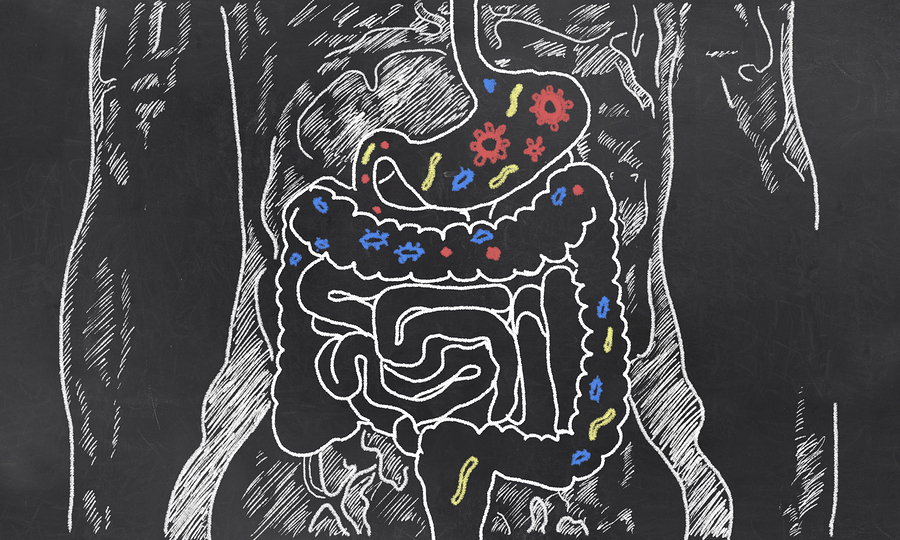Listen to your gut. And make sure to protect it. A balanced gastrointestinal system plays a critical role in defending your body against illness. An imbalance in gastrointestinal (GI) flora can create health issues and is typically the result of poor diet, stress, use of antibiotics, illness and food allergies.
Balance your GI flora by taking a probiotic supplement. Probiotics are live, microbial food ingredients similar to the health-enhancing microorganisms found in the gut. Well-researched health benefits show taking a probiotic will help . . .
- Boost immunity by enhancing the production of antibodies
- Support the synthesis of vitamins and increase bioavailability of nutrients
- Protect the GI tract from disease-causing bacteria
- Alleviate symptoms of GI illness (diarrhea and constipation, IBS)
- Reduce seasonal and food allergies
Regarding dietary allergens and immunity, scientists believe probiotics achieve their health benefits by stimulating the immune response to increase the secretion of immunoglobulin-A (IgA), which boosts the body’s response to food allergens. Elevated IgA may also decrease pathogens in the gut, which improves the balance of GI flora. Probiotics elevate natural “killer cells” that gobble up disease-generating “invader cells” and may protect nutrients that would otherwise be destroyed by pathogens.
Probiotic supplements come in liquid, powder, chewable and capsule form, ranging from one million to several billion live organisms. Most are sold refrigerated. Keep probiotics properly stored so as not to kill the live, healthy bacteria.
Even though probiotics have well documented health benefits, they are not a panacea. Probiotics are most effective when you are supporting your health with a balanced whole foods diet. Your health practitioner can determine the best probiotic strains and dosage and any other supplements suited for your specific health concerns.
References
- Laitinen K, Isolauri E. “Management of food allergy: vitamins, fatty acids or probiotics?” Eur J Gastroenterol Hepatol. (2005),17:1305-1311. PMID: 16292082: https://www.ncbi.nlm.nih.gov/pubmed/16292082
- Kligler B, Hanaway P, Cohrssen A. “Probiotics in children.” Pediatr Clin North Am. (2007), 54:949-967:xi. PMID: 18061785 DOI: 10.1016/j.pcl.2007.10.002 https://www.ncbi.nlm.nih.gov/pubmed/18061785
- Verna EC, Lucak S. “Use of probiotics in gastrointestinal disorders: what to recommend?” Therap Adv Gastroenterol. (2010) 3:307-319. http://journals.sagepub.com/doi/abs/10.1177/1756283X10373814
- Macfarlane GT, Cummings JH. “Probiotics and prebiotics: can regulating the activities of the intestinal bacteria benefit health.” BMJ. (1999) 318:999-1003. Accessed 12 April 2017: https://www.ncbi.nlm.nih.gov/pmc/articles/PMC1115424/
- Kiani, L., Cambridge Scientific Abstracts- Discovery Guide. Bugs in our Gut: How Probiotics Keep Us Healthy. (2006). Accessed 12 April 2017: http://citeseerx.ist.psu.edu/viewdoc/download?doi=10.1.1.503.8094&rep=rep1&type=pdf
- Mayo Clinic. Probiotics. Accessed 12 April 2017: http://www.mayoclinic.org/healthy-lifestyle/consumer-health/expert-answers/probiotics/faq-20058065

